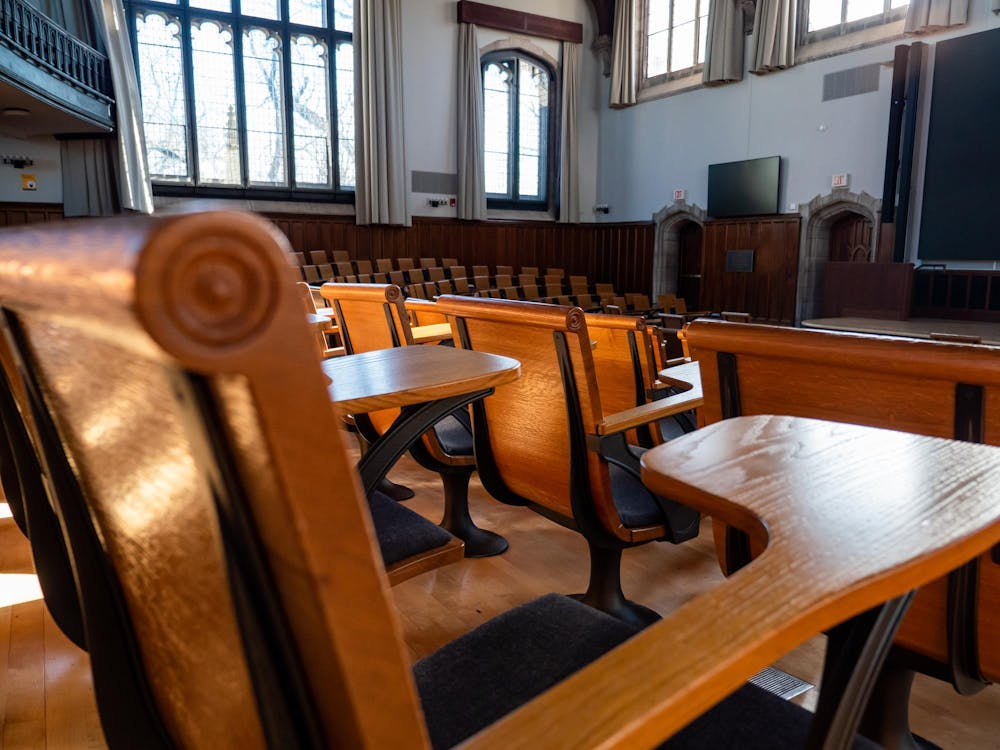After graduation, most of my classmates will enter the labor force with an advantage over our peers. Having attended Princeton, our employment prospects will be more plentiful than most students who didn't attend a highly regarded university. Many Princetonians who purchased a pricey private high school education or who, like myself, were fortunate enough to attend a first-class public school, risk the danger of falling prey to the timeless crime of undeserved over-confidence: being born on third base, thinking you hit a triple.
Unfortunately, we must recognize that many Americans are not afforded the same opportunities that those of us on third base take for granted. As some of the more fortunate students in the nation, it is appropriate that we step back from our ivory tower to examine the broader condition of American education.
One of the hottest issues in contemporary politics is education reform. Pleasing soccer moms across the nation, politicians hammer home the need to "invest in our children's future and save public education." Obviously, everyone believes that education is important; nevertheless, we shouldn't be too quick to accept traditional solutions.
Over the last three decades, two trends are consistent in public education: government spending per pupil has gone up and achievement and test scores have gone down. One reason for this discrepancy is the web of bureaucracy that steals precious resources from the classroom. It's time we recognize the fatal flaw of the public education system: government monopolies don't work — they lack incentives for innovation, improvement or high performance.
The public education system is permitted to consistently fail its consumers — the children and concerned families — without recourse. That's because, unlike many of my classmates, most Americans cannot afford to vote with their feet by purchasing a private school education. Hence, low-income parents are forced to look silently into the dark abyss of the public school system without alternative opportunities.
This must change: we need to introduce competition. In a competitive marketplace, providers would be forced to satisfy the demands of the consumers to deliver a world-class product: an education that prepares students to succeed in the contemporary global economy.
How can we accomplish this? The first step is to enact a program of universal school-choice vouchers. Vouchers give money back to parents to let them decide where their child attends school. A voucher of only $3,000 — far less than the average government expenditure per pupil — allows disadvantaged students to purchase affordable tuition at private or parochial schools.
Fledgling voucher programs in Milwaukee and Cleveland demonstrate that these programs can succeed. Early evidence has shown the beginnings of progress in the classroom and, just as importantly, the overwhelming satisfaction of parents. Expect this progress to continue. Unlike parents in the traditional public school system, parents armed with vouchers in an educational marketplace can hold schools accountable to deliver successful results or suffer the consequences.

Last year, the Children's Scholarship Fund — a nationwide charity that offers scholarships to low-income parents who agree to contribute $1,000 to their child's education — received over 1.25 million applications. Take out your calculator — you'll see that the most disadvantaged Americans are willing to pay over one billion dollars in ransom rather than let their children attend a public school. It's time we heed their cry.
Opponents charge that vouchers drain money from public schools. This contention demonstrates a flawed perspective: education policy should not exist to sustain failing public schools and protect teachers' union jobs. Its goal should be to teach our children. Currently, for far too many students, this goal is not being met.
While not a panacea, universal state voucher programs will begin to solve this problem by ending the public education monopoly. More importantly, they provide opportunities for those who need it most and, hopefully, will help alleviate the great inequalities in our education system. It's time we level the playing field with school-choice vouchers. Every student, not just those of us who were born on third base, deserves the opportunity to succeed. Dan Lips is a politics major from Weston, Conn. He can be reached at danlips@princeton.edu.








